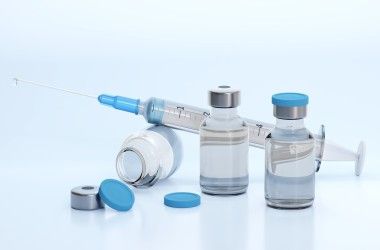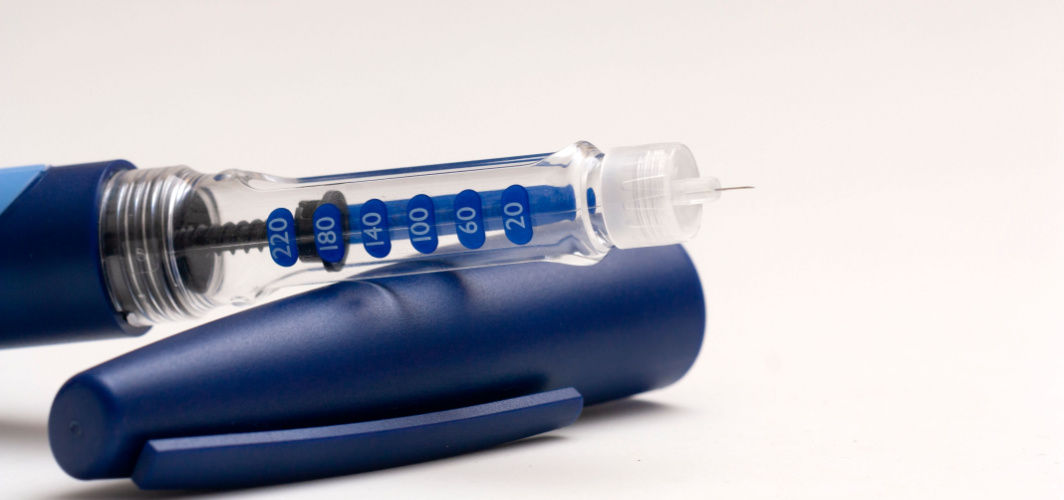Diabetes Management
Vaccinations You Must Take If You Are Diabetic
2 min read
By Apollo 24|7, Published on - 29 January 2024, Updated on - 22 February 2024
Share this article
0
0 like

Vaccinations play a critical role in safeguarding public health by preventing various diseases. For individuals living with diabetes, vaccines are not only a means of disease prevention but also a vital component of overall diabetes care. Diabetes can weaken the immune system and increase the risk of infection complications, making it even more essential to stay up-to-date on vaccinations. Here are some key vaccinations that individuals with diabetes should consider:
1. Influenza (Flu) Vaccine
Influenza can have severe consequences for people with diabetes, as it can lead to elevated blood sugar levels and complications. Getting an annual flu shot is highly recommended for individuals with diabetes. The vaccine is updated each year to protect against the prevalent strains of the virus.
2. Pneumococcal Vaccines
Individuals with diabetes are at a higher risk of pneumonia. The two pneumococcal vaccines recommended for adults with diabetes are the Pneumococcal Conjugate Vaccine (PCV13) and Pneumococcal Polysaccharide Vaccine (PPSV23). These vaccines protect against different bacteria strains against different strains of the bacteria that can cause pneumonia.
3. Hepatitis B Vaccine
Hepatitis B is a viral infection that can be more severe in individuals with diabetes. It is primarily transmitted through contact with infected blood or bodily fluids. Diabetes care often involves blood glucose monitoring and insulin injections, making the hepatitis B vaccine an important preventative measure.
4. Hepatitis A Vaccine
Hepatitis A is another viral infection that can pose a greater risk to those with diabetes. The virus is typically contracted through contaminated food or water. The hepatitis A vaccine can provide protection against this infection.
5. Tdap (Tetanus, Diphtheria, Pertussis) Vaccine:
The Tdap vaccine is recommended for adults as a tetanus and diphtheria protection booster. Pertussis, or whooping cough, is also included in this vaccine. Ensuring that your Tdap vaccination is up-to-date helps protect against these preventable diseases.
6. Shingles (Herpes Zoster) Vaccine
Shingles is a painful skin rash caused by the reactivation of the chickenpox virus. Individuals with diabetes are at a higher risk of shingles. The Shingles vaccine, also known as the Herpes Zoster vaccine, can reduce the risk of developing this painful condition.
7. COVID-19 Vaccine
The ongoing COVID-19 pandemic has highlighted the importance of vaccination for everyone, including individuals with diabetes. COVID-19 can lead to severe complications in those with underlying health conditions, such as diabetes. Getting vaccinated against COVID-19 is a crucial step in protecting your health and the health of the community.
Conclusion
Consulting with your healthcare provider is essential to determine the specific vaccines you need based on your age, overall health, and diabetes management. Keeping a record of your vaccinations and staying updated on recommended boosters is an integral part of diabetes care. By prioritizing these vaccinations, you can enhance your overall health, minimize the risk of complications, and better manage your diabetes.
Tags
- pruswurewrifradriuuprohuwroswithavowrumefrafruwriputrukegecligaspiclutrastanaspidrauuswaclethacidrodredrecralaliswogobricruhacrogubraslechofraphukoshuhiprucluweshiwinituwrarabenonewrokeh
Diabetes Management
Consult Top Diabetologists
View AllLeave Comment
Recommended for you
.jpg?tr=q-80)
Diabetes Management
Can Stress And Lack Of Sleep Cause Diabetes?
Did you know that persistent stress and chronic sleep deprivation can contribute to the development of type 2 diabetes? Maintaining a healthy sleep schedule and managing stress effectively is crucial in diabetes prevention and management. Start your journey towards better health today by understanding more about these risk factors and how to mitigate them. Enrol in Apollo's Super 6 programme to help you improve these conditions and, as a result, manage your diabetes more effectively.

Diabetes Management
What are the Factors that Influence Insulin Action?
Insulin action refers to the ability of insulin to regulate blood sugar levels and various metabolic processes in the body. Insulin action is influenced by factors like, your weight, physical activity, diet, hormones, medications, stress, sleep, age and genetics. Insulin sensitivity varies among individuals and can be affected by lifestyle and genetic predispositions. Maintaining a healthy lifestyle through diet, exercise, and stress management is essential for optimal insulin action and metabolic health.
.jpg?tr=q-80)
Diabetes Management
What Is The Impact Of Climate Change On Diabetes Care?
Climate change poses unique challenges to individuals managing diabetes, from increased health risks under extreme weather conditions to disruptions in medical supplies access. Simultaneously, diabetes care also contributes to environmental issues. Tackling these challenges requires robust strategies and coordinated efforts. Enrolling in comprehensive support programmes like Apollo Super 6 can be a strong step towards managing diabetes effectively amidst these challenges.
Subscribe
Sign up for our free Health Library Daily Newsletter
Get doctor-approved health tips, news, and more.
Visual Stories

8 Fruits That are Incredibly Healthy for Diabetes
Tap to continue exploring
Recommended for you
.jpg?tr=q-80)
Diabetes Management
Can Stress And Lack Of Sleep Cause Diabetes?
Did you know that persistent stress and chronic sleep deprivation can contribute to the development of type 2 diabetes? Maintaining a healthy sleep schedule and managing stress effectively is crucial in diabetes prevention and management. Start your journey towards better health today by understanding more about these risk factors and how to mitigate them. Enrol in Apollo's Super 6 programme to help you improve these conditions and, as a result, manage your diabetes more effectively.

Diabetes Management
What are the Factors that Influence Insulin Action?
Insulin action refers to the ability of insulin to regulate blood sugar levels and various metabolic processes in the body. Insulin action is influenced by factors like, your weight, physical activity, diet, hormones, medications, stress, sleep, age and genetics. Insulin sensitivity varies among individuals and can be affected by lifestyle and genetic predispositions. Maintaining a healthy lifestyle through diet, exercise, and stress management is essential for optimal insulin action and metabolic health.
.jpg?tr=q-80)
Diabetes Management
What Is The Impact Of Climate Change On Diabetes Care?
Climate change poses unique challenges to individuals managing diabetes, from increased health risks under extreme weather conditions to disruptions in medical supplies access. Simultaneously, diabetes care also contributes to environmental issues. Tackling these challenges requires robust strategies and coordinated efforts. Enrolling in comprehensive support programmes like Apollo Super 6 can be a strong step towards managing diabetes effectively amidst these challenges.

